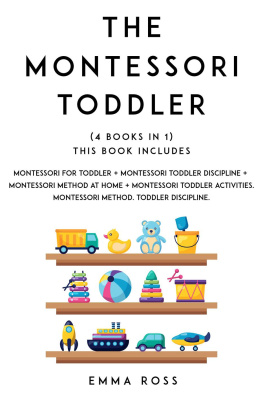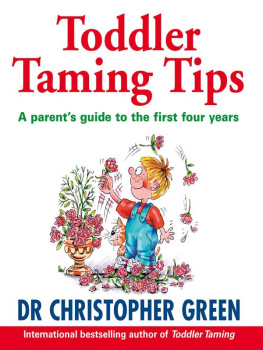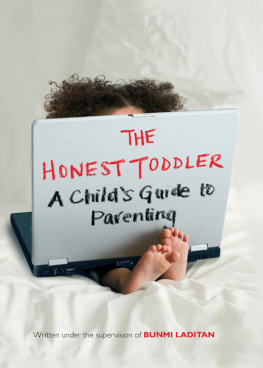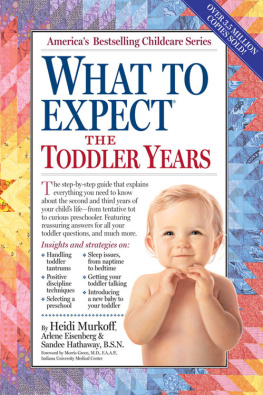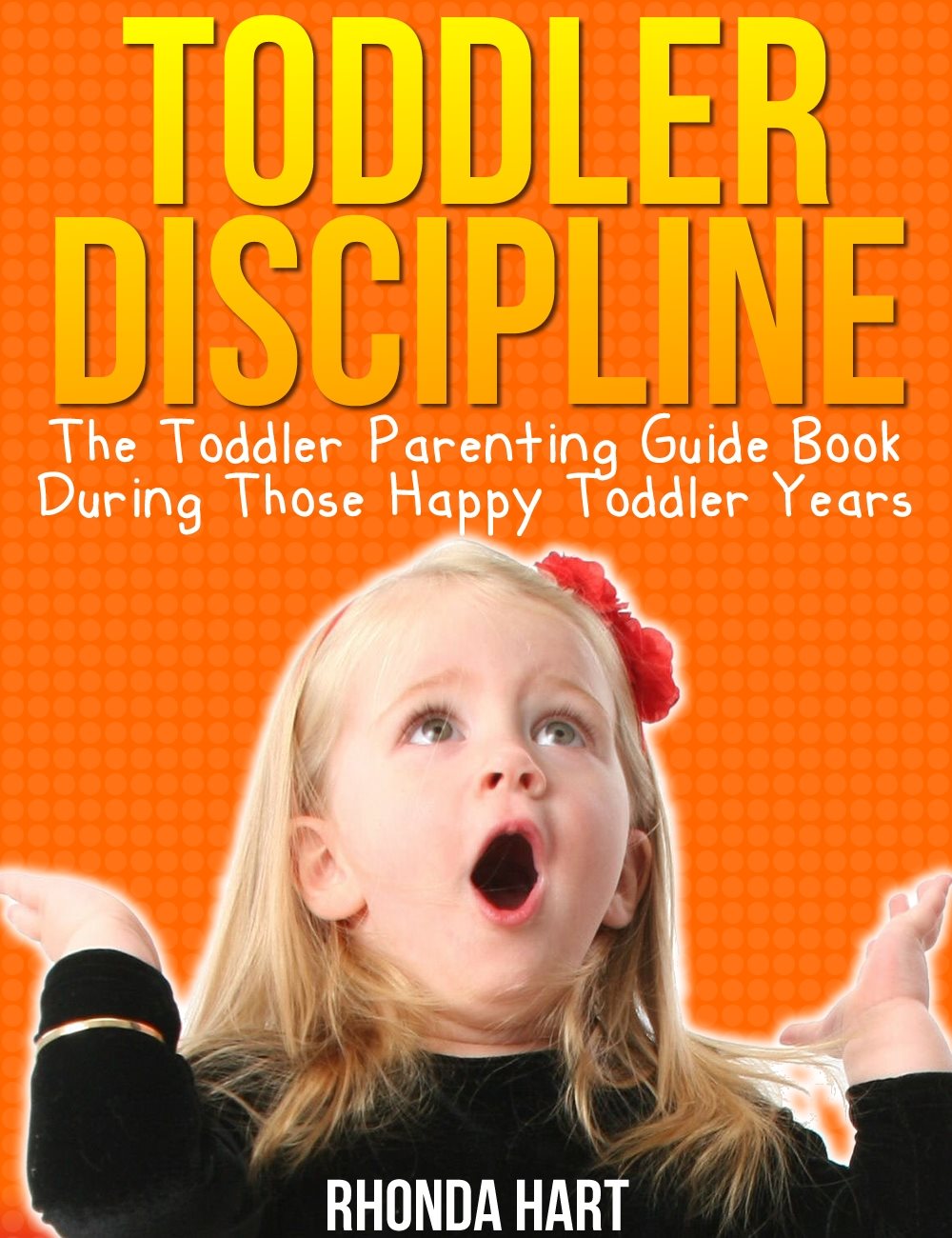Toddler Discipline
Toddlers are unique individuals; they are not quite babies,helpless and hapless, nor are they mature enough to handle life as an olderchild. Those toddler years ages 1 to 3 can be trying for parents, as these tinyindividuals start to flex their little independent muscles, which many timesends up in frustration. Most toddlers react to this frustration by throwingtemper tantrums. Parents need then to exercise discipline on their wee toddlerto help them to learn to behave as good little people.
Discipline and punishment are not the same things. Manymistake discipline as corporal punishment. Punishment is an act you do to makea child realize they did a bad thing and it is a means of correcting themthrough an undesirable (to the child) action. Discipline is a means to train achild (and even adults!) to act with good behavior and to show that choices wemake have consequences, either good or bad. Discipline helps us to learn how tocontrol our actions, and in disciplining a child, we are training that child onhow to have good behavior by directing them to make the right choices andshowing them that making the wrong choices has consequences.
To start, this book takes a look at reasons why toddlers areset off, why they throw fits and why they need disciplined. First, look attheir personalities.
A Look at Different Personalities
Toddlers are still developing their personalities, so theyfit into some easy to define categories in the beginning. You have theadventurer, the child who has no fear and will get into anything, go anywhereand strike out with their daredevil attitudes. You have the easy-going happychild, who will sit and play quietly and who loves everyone. Then you have theshy clingy child. This child is quiet, especially in social settings. They takea while to get to know others, but once they do, they are loveable and kind.
The Adventurer
The adventurers are actually in the minority of alltoddlers, but when you find one, watch out. These ones will challenge everystep of parenting. Roughly ten percent of all toddlers fall into this category.More recently, experts want to label these children as hyperactive. They truthis they are hyperactive, but not in a bad sense. They have a lot of energy toburn and the desire to burn it. These toddlers excel in physical activity. Theyhave no fear, because they have not yet been taught to fear. You may find theadventurer standing on top of the refrigerator, because they think it is coolto see above the ceiling fan. On the other hand, they may be the ones that tryto slide down the rail of the stairs, seeking thrills. The adventurer bearswatching, because if you turn your back on them for one second they will getthemselves into trouble. This is where the need for discipline comes in, tohelp them to realize what is and is not acceptable behavior.
The way to control this personality and keep peace is tohelp them burn this energy. The defiance comes in when you try to cap a childlike this, when you try to force them into being a shy quiet type. Allow themample time to run, play, and burn this excessive energy off and to give themroom to satisfy their adventure seeking or you will be finding the need topractice discipline on this child.
Here are some tips on dealing with the adventurer:
These high-energy children will defy a parent's command andwill not look back as they climb to danger. You may notice these children havea strong will and will buck up against a parent. Their tantrums are loud,strong, and long. Parents of adventure toddlers do have to work harder at thediscipline, simply because it takes more time and patience to get through tothese energy bundles.
Since your high-spirited child is already bouncing off thewalls, help to calm them down by letting them know what to expect. For example,if you are about to change locations with them, telling them before in detailwhat is happening. "We are going to leave, you need to put on your coat,climb in the car seat and buckle, and then we will drive for a while."Likewise, with whatever is going on. By letting them know what is going on,they can prepare and expend their energy toward helping you instead of pitchingan anxious fit. Many parents do not understand the need for their energetictoddler to have the details in what is going on, but they do. You help them tohelp you by telling them ahead of time.
Sometimes just telling them what will happen will not beenough. You will have to show them, you will have to remind them. Remember theadventuresome child is compared to one with ADHD, meaning they are hyperactivewith very short attention spans. You will have to have them look you in the eyelong enough to get the point across. In addition, you may have to repeat ituntil it happens. If there is any way to show them physically, that will workbetter. If you are planning to go somewhere, point to the car when you tellthem they will have to get in and buckle up. If someone is coming for a visit,show your child a photo of the person coming for a visit.
In other words, spell it out for them. Talk to them in a waythey will understand. Show them the way.
These children, more than any of the other personalitytypes, need strong limits and complete consistency. It helps them to focusbetter if we are clear about this. Keep the routine. If you ever have to varyfrom it, let them know well ahead of time.
The energetic toddler needs physical contact with you.Instead of constantly talking to them, hold them, rock them, hold their hand,and hug them in the midst of the craziness. This contact can serve as a sourceof calm for them.
Having an energetic child will take more energy todiscipline and train. You may feel drained having to go to such extra measuresto communicate with them, but in the end, it is worth it.
Energetic toddlers thrive in positive environments. Insteadof getting onto them constantly for the trouble they find, they need to hearthey are doing things right, that you are proud of them. However, since this isdifficult if you are constantly on guard with them, try to find little thingsto bring them some positive reinforcements. Whenever they do behave, complimentthem. When they go get ready for bed the first time you tell them, thank them.When they come to you the first time you call them, hug them for doing so andlet them know you appreciate it. They will simply thrive in this.
The parents of the energetic child know that temper tantrumsare more likely in public, because they seem to get into more trouble. They arenot able to just run free, play, and expend their energy as they are at home.When you try to put a cap on their energy, the tantrum ensues. When going outin public prepare well in advance to cover all possible cues that may strike atantrum. Energetic kids look for ways to get down, run, touch, and climb. Donot take them to places where they cannot have a little bit of freedom, likesome fancy quiet restaurant. Go somewhere that is kid friendly.
Consider the things that set your toddler off. If eatingsugar makes them hyperactive, choose to feed them healthier foods instead. Ifthey become hyped when they are tired, make sure they get enough rest, etc.Next, consider what soothes them and calms them down and work keep them calmthrough the soothing. For example, a warm bath always relaxes a person, so ifyou have issues with bedtime, make a nice warm bath part of the bedtimeroutine. If you know a certain food makes them hyperactive, do not give it tothem.


